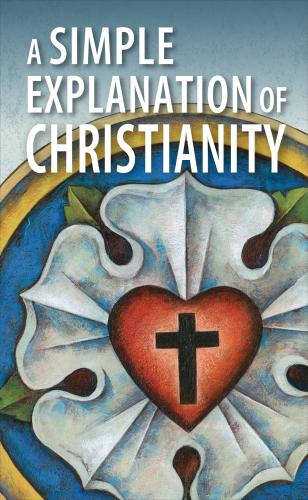Life requires language. Beyond English, German, or Spanish, etc., life teems with vocation-specific language. Professors speak of MLA, TLA, the syllabus, and the précis. Truckers talk about alligators, bears, and cabbage (referring neither to animals or vegetables). Restaurant servers speak of tops, the window, and 86-ing menu items (referring not to spinning things, glass, or numbers). Lawyers reference amicus curiae, depositions, and the burden of proof. Nurses converse about EEGs, EKGs, MRIs, ECHOs and many more acronyms. And pastors may reference incurvatus in se or simul iustus et peccator. To communicate and navigate these vocations, you must learn the language.
Christianity, likewise, requires learning a language. It’s a language largely lost by our culture, a language many Christians are abandoning in the name of experience or privatized religion. More and more Christians see less and less reason to learn the language of the faith. Instead, they believe they can shrink-wrap the faith into personal servings with individualized language.
Mind-forming terms like order of creation, original sin, righteousness, contrition, absolution, justification, and propitiation, and life-shaping practices like corporate worship, historic liturgy, Biblical teaching, and grace-conveying Sacraments, are abandoned. For what? For what sociologist Christian Smith has termed, “Moralistic Therapeutic Deism,” i.e., there’s a god out there who wants people to be happy, nice, and well-adjusted, the definition of which is up to us.
But imagine if any of the aforementioned vocations did likewise! Imagine if professors, truckers, servers, lawyers, nurses, and pastors simply abandoned the language of their vocations in favor of their own self-chosen language. Imagine the chaos! Students wouldn’t know from class to class what professors were talking about. Truckers couldn’t communicate. Restaurants would become ridiculously inefficient (and customers exceedingly frustrated). Lawyers would see their backlog of cases explode. Nurses couldn’t coordinate care for patients. And pastors would end up teaching a different faith. These vocations require a shared, communal language to function.
Christianity is no different. To understand, confess, and live Christianity, we must learn its language. In order to recapture the language of the faith and re-engage Christians in living and confessing the faith, we need to reconnect ourselves to the language of the faith. How do we do it? Begin with the Catechism. In 2017 our Synod published the catechism with an updated question and answer section to address the pressing questions of our age. I highly recommend acquiring a copy (I can help).
For everyday use, however, I strongly urge you to pick up a copy of the basic catechism from church (available in the resource center). This free booklet (titled: A Simple Explanation of Christianity) fits neatly in your Bible, on your night stand, or on your coffee table, and is a fabulous way to learn the language of the faith. Begin by memorizing the Ten Commandments – and their explanations. Yes, you can do this. Don’t make it complicated. Focus a few minutes a day on one commandment at a time. If you have a family, review one or two per day. Then move on to the Creed and the Lord’s Prayer and so on.
Try it. Don’t disparage it as too facile or dismiss it as too demanding. This is about language learning. It’s about connecting you to the community and the confession of Christianity. And it works! Learn the language of the faith and watch what happens! – Pastor Conner
